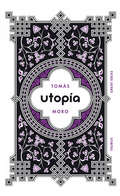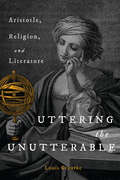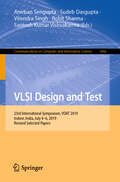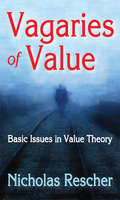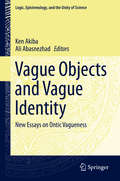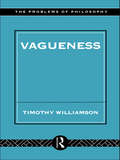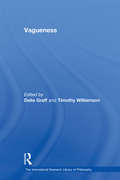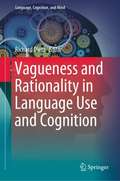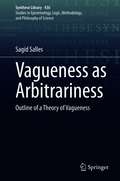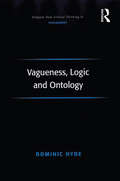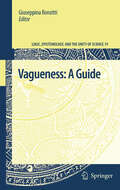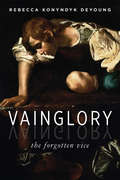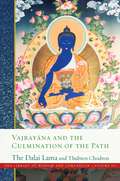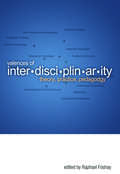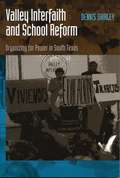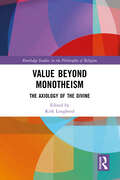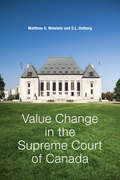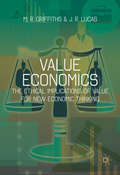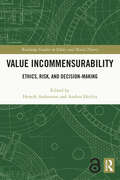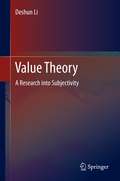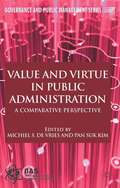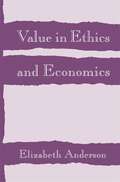- Table View
- List View
Utopía (Serie Great Ideas #Volumen 18)
by Tomás MoroIdeas que han cambiado el mundo. A lo largo de la historia, algunos libros han cambiado el mundo. Han transformado la manera en que nos vemos a nosotros mismos y a los demás. Han inspirado el debate, la discordia, la guerra y la revolución. Han iluminado, indignado, provocado y consolado. Han enriquecido vidas, y también las han destruido. Taurus publica las obras de los grandes pensadores, pioneros, radicales y visionarios cuyas ideas sacudieron la civilización y nos impulsaron a ser quienes somos. En Utopía, Tomás Moro describió el fantástico escenario de una isla lejana donde la sociedad se ha perfeccionado hasta alcanzar la armonía. Sin embargo, su título literalmente significa «el no lugar», y esta influyente obra no constituía sino un ataque a su propia época, corrupta y peligrosa, y a los defectos de la humanidad. Comentarios sobre la colección Great Ideas:«De veras que la edición es primorosa y pocas veces contenido y continente pueden encontrarse mejor ensamblados y unidos. ¡Qué portadas! Para enmarcar. [...] Ante las "Great Ideas", solo cabe quitarse el sombrero. ¡Chapeau!»ABC «Taurus propone un doble envite con este lanzamiento. Por un lado aumenta su compromiso con el ensayo; por otro, recupera el gusto por la estética. A los volúmenes se les ha proporcionado una portada delicada y cuidada (copian el original británico) que invita a la lectura.»La Razón «Un fenómeno editorial.»The Guardian «Aparte de los contenidos, en general muy bien elegidos, son tan bonitos que si los ven seguro que cae alguno.»El País «Ideas revolucionarias, crónicas de exploraciones, pensamientos radicales... vuelven a la vida en estas cuidadísimas ediciones, muy atractivas para nuevos lectores.»Mujer Hoy «Grandes ideas bien envueltas. De Cicerón a Darwin, esta colección entra por los ojos.»Rolling Stone «Original y bella iniciativa la emprendida por Taurus con su colección Great Ideas.»Cambio 16 «Hay libros inmortales, libros únicos que contienen pensamientos y reflexiones capaces de cambiar el mundo, tesoros en miniatura reagrupados en la colección Great ideas.»Diario de León
Uttering the Unutterable: Aristotle, Religion, and Literature
by Louis F. GroarkeLiterature utters the unutterable, not through logic, not through science, not through argument, but through a pitch of eloquence so pronounced the conscientious reader cannot fail to pay attention.Louis Groarke argues that literature is an honorific term we use to describe texts that are so overpowering they lift us to an encounter with an ineffable ultimate that is beyond logical or scientific explanation. In Uttering the Unutterable he proposes a wisdom epistemology that identifies an experience of transcendence as the defining criterion of literature. Offering four mutually reinforcing definitions of literature in line with Aristotle’s theory of four causes, Groarke compares the experience of reading to Aristotle’s account of philosophical contemplation and maintains that literature has inevitable ethical content. Moving beyond the Aristotelianism of the late Chicago School, Groarke presents a new synthesis that breaks through essentialist stereotypes and contends that literature, like religion, points to an ineffable transcendental, to something beyond what we can adequately explain, prove, systematize, quantify, or enclose in a theory.Uttering the Unutterable explores how Aristotelian philosophy provides the most complete and compelling account of literature for philosophers, literary critics, and theorists.
VLSI Design and Test: 23rd International Symposium, VDAT 2019, Indore, India, July 4–6, 2019, Revised Selected Papers (Communications in Computer and Information Science #1066)
by Rohit Sharma Virendra Singh Sudeb Dasgupta Anirban Sengupta Santosh Kumar VishvakarmaThis book constitutes the refereed proceedings of the 23st International Symposium on VLSI Design and Test, VDAT 2019, held in Indore, India, in July 2019. The 63 full papers were carefully reviewed and selected from 199 submissions. The papers are organized in topical sections named: analog and mixed signal design; computing architecture and security; hardware design and optimization; low power VLSI and memory design; device modelling; and hardware implementation.
Vagaries of Value: Basic Issues in Value Theory
by Nicholas RescherPragmatism's founder, C. S. Peirce, initially envisioned philosophy as a means of rationally validating our beliefs and actions. Afterward, William James changed pragmatism into a way of undermining commitment to rational cogency. With the subsequent turn of various contemporary pragmatisms to relativism and subjectivism, such irrational tendencies have become still more prominent.Vagaries of Value aims to create a version of realistic and rationalistic pragmatism that is systemically viable and does justice to traditional pragmatism's salient insights. Nicholas Rescher strives to return pragmatism to its realistic and objectivistic roots in a detailed survey of issues across the whole board of philosophical thought, action, and evaluation.Rescher argues that the crisis of pragmatism created by today's subjective tendencies should be met by adopting not a revisionary, but a reconstructive understanding of pragmatism, keeping close to its Peircean roots. He argues that such a turning does not mitigate against the pragmatic program's practical orientation, but provides an opportunity for sharpening our understanding of how pragmatism can and should be developed.
Vague Objects and Vague Identity
by Ken Akiba Ali AbasnezhadThis unique anthology of new, contributed essays offers a range of perspectives on various aspects of ontic vagueness. It seeks to answer core questions pertaining to onticism, the view that vagueness exists in the world itself. The questions to be addressed include whether vague objects must have vague identity, and whether ontic vagueness has a distinctive logic, one that is not shared by semantic or epistemic vagueness. The essays in this volume explain the motivations behind onticism, such as the plausibility of mereological vagueness and indeterminacy in quantum mechanics and they offer various arguments both for and against ontic vagueness; onticism is also compared with other, competing theories of vagueness such as semanticism, the view that vagueness exists only in our linguistic representation of the world. Gareth Evans's influential paper of 1978, "Can There Be Vague Objects?" gave a simple but cogent argument against the coherence of ontic vagueness. Onticism was subsequently dismissed by many. However, in recent years, researchers have become aware of the logical gaps in Evans's argument and this has triggered a new wave of interest in onticism. Onticism is now widely regarded as at least a coherent view. Reflecting this growing consensus, the present anthology for the first time puts together essays that are focused on onticism and its various facets and it fills in the lacuna in the literature on vagueness, a much-discussed subject in contemporary philosophy.
Vagueness (Problems of Philosophy)
by Timothy WilliamsonIf you keep removing single grains of sand from a heap, when is it no longer a heap? From discussions of the heap paradox in classical Greece, to modern formal approaches like fuzzy logic, Timothy Williamson traces the history of the problem of vagueness. He argues that standard logic and formal semantics apply even to vague languages and defends the controversial, realist view that vagueness is a form of ignorance - there really is a grain of sand whose removal turns a heap into a non-heap, but we can never know exactly which one it is.
Vagueness (The International Research Library of Philosophy #Vol. 27)
by Timothy Williamson Delia GraffVagueness, volume XX, contains twenty-seven essays, with issues covered including: nihilism, phenomenal sorites, degrees of truth, epistemicism, higher-order vagueness, contextualism, and intuitionism. Written by leading contemporary philosophers, these essays will be of interest to researchers in philosophy of language, philosophical logic, metaphysics and epistemology; as well as those in natural language semantics, artificial intelligence and cognitive science more generally. A substantial introduction written by the editors provides a guide to the topic and to the essays in the volume.
Vagueness and Language Use
by Paul Égré Nathan KlinedinstThis volume brings together twelve papers by linguists and philosophers contributing novel empirical and formal considerations to theorizing about vagueness. Three main issues are addressed: gradable expressions and comparison, the semantics of degree adverbs and intensifiers (such as 'clearly'), and ways of evading the sorites paradox.
Vagueness and Rationality in Language Use and Cognition (Language, Cognition, and Mind #5)
by Richard DietzThis volume presents new conceptual and experimental studies which investigate the connection between vagueness and rationality from various systematic directions, such as philosophy, linguistics, cognitive psychology, computing science, and economics. Vagueness in language use and cognition has traditionally been interpreted in epistemic or semantic terms. The standard view of vagueness specifically suggests that considerations of agency or rationality, broadly conceived, can be left out of the equation. Most recently, new literature on vagueness has been released which suggests that the standard view is inadequate and that considerations of rationality should factor into more comprehensive models of vagueness. The methodological approaches presented here are diverse, ranging from philosophical interpretations of rational credence for vagueness to adaptations of choice theory (dynamic choice theory, revealed preference models, social choice theory), probabilistic models of pragmatic reasoning (Bayesian pragmatics), evolutionary game theory, and conceptual space models of categorisation.
Vagueness as Arbitrariness: Outline of a Theory of Vagueness (Synthese Library #436)
by Sagid SallesThis book proposes a new solution to the problem of vagueness. There are several different ways of addressing this problem and no clear agreement on which one is correct. The author proposes that it should be understood as the problem of explaining vague predicates in a way that systematizes six intuitions about the phenomenon and satisfies three criteria of adequacy for an ideal theory of vagueness. The third criterion, which is called the “criterion of precisification”, is the most controversial one. It is based on the intuition that a predicate is vague only if it is imprecise. The author considers some different definitions of linguistic imprecision, proposing that a predicate is imprecise if and only if there is no sharp boundary between objects to which its application yields some particular truth-value and objects to which its application does not yield that truth-value. The volume critically reviews the current theories of vagueness and proposes a new one, the Theory of Vagueness as Arbitrariness, which defines a vague predicate as an arbitrary predicate that must be precisified in order to contribute to a sentence that has truth-conditions. The main advantages of this theory over the current alternatives are that it satisfies all three criteria and systematizes the relevant intuitions.
Vagueness, Logic and Ontology (Ashgate New Critical Thinking In Philosophy Ser.)
by Dominic HydeThe topic of vagueness re-emerged in the twentieth century from relative obscurity. It deals with the phenomenon in natural language that manifests itself in apparent semantic indeterminacy - the indeterminacy, for example, that arises when asked to draw the line between the tall and non-tall, or the drunk and the sober. An associated paradox emphasises the challenging nature of the phenomenon, presenting one of the most resilient paradoxes of logic. The apparent threat posed for orthodox theories of the semantics and logic of natural language has become the focus of intense philosophical scrutiny amongst philosophers and non-philosophers alike. Vagueness, Logic and Ontology explores various responses to the philosophical problems generated by vagueness and its associated paradox - the sorites paradox. Hyde argues that the theoretical space in which vagueness is sometimes ontologically grounded and modelled by a truth-functional logic affords a coherent response to the problems posed by vagueness. Showing how the concept of vagueness can be applied to the world, Hyde's ontological account proposes a substantial revision of orthodox semantics, metaphysics and logic. This book will be of particular interest to readers in philosophy, linguistics, cognitive science and geographic information systems.
Vagueness: A Guide
by Giuseppina RonzittiThis volume explores how vagueness matters as a specific problem in the context of theories that are primarily about something else. After an introductory chapter on the Sorites paradox, which exposes the various forms the paradox can take and some of the responses that have been pursued, the book proceeds with a chapter on vagueness and metaphysics, which covers important questions concerning vagueness that arise in connection with the deployment of certain key metaphysical notions. Subsequent chapters address the following: vagueness and logic, which discusses the sort of model theory that is suggested by the main, rival accounts of vagueness; vagueness and meaning, which focuses on contextualist, epistemicist, and indeterminist theories; vagueness and observationality; vagueness within linguistics, which focuses on approaches that take comparison classes into account; and the idea that vagueness in law is typically extravagant and that extravagant vagueness is a necessary feature of legal systems.
Vainglory: The Forgotten Vice
by Rebecca Konyndyk DeYoungJulia Roberts on the red carpet at the Oscars. Lady Gaga singing “Applause” to worshipful fans at one of her sold-out concerts. And you and me in our Sunday best in the front row at church. What do we have in common?Chances are, says Rebecca Konyndyk DeYoung, that we all suffer from vainglory -- a keen desire for attention and approval. Although contemporary culture has largely forgotten about vainglory, it was on the original list of seven capital vices and is perhaps more dangerous than ever today.In Vainglory: The Forgotten Vice DeYoung tells the story of this vice, moving from its ancient origins to its modern expressions. She defines vainglory, gives examples from popular culture, explores motivational sources, and discusses other vices associated with it such as hypocrisy and boasting. After exposing the many ways in which vainglory can rear its ugly head, she explores personal spiritual practices that can help us resist it and community practices that can help us handle glory well.
Vajrayana and the Culmination of the Path (The Library of Wisdom and Compassion #10)
by Dalai Lama Venerable Thubten ChodronThe final volume of the Library of Wisdom and Compassion by His Holiness the Dalai Lama takes us to the uncommon practices and realizations of Vajrayana to the full awakening of a buddha.His Holiness the Dalai Lama skillfully illuminates the unique qualities of Vajrayana, as practiced in Tibet, and the method to eradicate the subtlest obscurations preventing the full awakening of a buddha. Speaking to newcomers and advanced students alike, he explains the similarities and differences of the Sutra and Tantra paths. Having gathered many of the doubts and difficult points concerning the tantric path, he clarifies the purpose of receiving proper empowerment by qualified gurus and the ethical restraints and commitments required to enter the path of secret mantra. The paths and stages of the four tantric classes are explained, as are the generation-stage and completion-stage practices of Highest Yoga Tantra. You are introduced to the practices of clear appearance and divine identity common to all tantric sadhanas, as well as the distinctive practices of illusory body and actual clear light that overcome the subtlest defilements on the mind and eliminate all obscurations quickly. The understanding of emptiness in Sutra and Tantra is the same, but the consciousness perceiving emptiness differs. In Highest Yoga Tantra that consciousness is great bliss, which arises from knowing the methods to manipulate the channels, winds, and drops of the subtle body. In short, in Vajrayana and the Culmination of the Path the Dalai Lama sets out the path that leads to blissful awakening and enables us to be of great benefit to all sentient beings.
Valences of Interdisciplinarity: Theory, Practice, Pedagogy
by Raphael FoshayThe modern university can trace its roots to Kant's call for enlightened self-determination, with education aiming to produce an informed and responsible body of citizens. As the university evolved, specialized areas of investigation emerged, enabling ever more precise research and increasingly nuanced arguments. In recent decades, however, challenges to the hegemony of disciplines have arisen, partly in response to a perceived need for the university to focus greater energy on its public vocation—teaching and the dissemination of knowledge. Valences of Interdisciplinarity presents essays by an international array of scholars committed to enhancing our understanding of the theoretical underpinnings and the practical realities of interdisciplinary teaching and research. What is, and what should be, motivating our reflections on (and practice of) approaches that transcend the conventional boundaries of discipline? And in adopting such transdisciplinary approaches, how do we safeguard critical methods and academic rigour? Reflecting on the obstacles they have encountered both as thinkers and as educators, the authors map out innovative new directions for the interdisciplinary project. Together, the essays promise to set the standards of the debate about interdisciplinarity for years to come.
Valley Interfaith and School Reform: Organizing for Power in South Texas
by Dennis ShirleyCan public schools still educate America's children, particularly in poor and working class communities? Many advocates of school reform have called for dismantling public education in favor of market-based models of reform such as privatization and vouchers. <P>By contrast, this pathfinding book explores how community organizing and activism in support of public schools in one of America's most economically disadvantaged regions, the Rio Grande Valley of South Texas, has engendered impressive academic results. <P><P> Dennis Shirley focuses the book around case studies of three schools that have benefited from the reform efforts of a community group called Valley Interfaith, which works to develop community leadership and boost academic achievement. He follows the remarkable efforts of teachers, parents, school administrators, clergy, and community activists to take charge of their schools and their communities and describes the effects of these efforts on students' school performance and testing results.
Value And Virtue In A Godless Universe
by Erik J. WielenbergSuppose there is no God. This might imply that human life is meaningless, that there are no moral obligations and hence people can do whatever they want, and that the notions of virtue and vice and good and evil have no place. Erik J. Wielenberg believes this view to be mistaken and in this book he explains why. He argues that even if God does not exist, human life can have meaning, we do have moral obligations, and virtue is possible. Naturally, the author sees virtue in a Godless universe as different from virtue in a Christian universe, and he develops naturalistic accounts of humility, charity, and hope. The moral landscape in a Godless universe is different from the moral landscape in a Christian universe, but it does indeed exist. Value and Virtue in a Godless Universe is a tour of some of the central landmarks of this under-explored territory.
Value Beyond Monotheism: The Axiology of the Divine (Routledge Studies in the Philosophy of Religion)
by Kirk LougheedThis book expands the current axiology of theism literature by assessing the axiological status of alternative conceptions of God and the divine. To date, most of the literature on the axiology of theism focuses almost exclusively on the axiological status of theism and atheism. Specifically, it focuses almost entirely on monotheism, typically Judeo-Christian conceptions of God, and atheism, usually construed as ontological naturalism. This volume features essays from prominent philosophers of religion, ethicists, and metaphysicians addressing the value impact of alternative views such as ultimism, polytheism, pantheism, panentheism, and idealism. Additionally, it reflects a wider trend in analytic philosophy of religion to broaden its scope beyond the Judeo-Christian tradition. Value Beyond Monotheism will be of interest to scholars and advanced students working in the philosophy of religion, ethics, and metaphysics.
Value Change in the Supreme Court of Canada
by Cynthia Ostberg Matthew WetsteinValue Change in the Supreme Court of Canada is a groundbreaking analysis of the degree to which Supreme Court decisions reflect the changing values of society over the past four decades. Focusing on three key areas of law: environmental disputes, free speech, and discrimination cases, Wetstein and Ostberg provide a revealing analysis of the language used by Supreme Court justices in landmark rulings in order to document the way that value changes are transmitted into the legal and political landscape. Bolstered by a comprehensive and nuanced blend of research methods, Value Change in the Supreme Court of Canada offers a sweeping analysis of pre- and post-Charter influences, one that will be of significant interest to political scientists, lawyers, journalists, and anyone interested in the increasingly powerful role of the Supreme Court.
Value Economics: The Ethical Implications of Value for New Economic Thinking
by M. R. Griffiths J. R. LucasThe last financial crisis revealed a gap between business practice and ethics. In Value Economics, Griffiths and Lucas examine some of the reasons for this ethical gap and discuss the resulting loss of confidence in the financial system. One of the reasons has been hazy or inadequate thinking about how we value economic enterprises. With the close link between the creation of value and business ethics in mind, this book proposes that economic value should become the basic metric for evaluating performance in the creation of value, and for establishing fair and reasonable standards for executive compensation. Value Economics considers a number of rational philosophical principles for business management, on which practical codes of business ethics can be based. As the creation of value has moral implications for economic justice, the book reaffirms the argument for economics as a moral science, and seeks, within the context of proposed changes in the regulation and control of financial services, to answer the following question: will things really change after the last financial crisis?
Value Incommensurability: Ethics, Risk, and Decision-Making (Routledge Studies in Ethics and Moral Theory)
by Anders HerlitzIncommensurability is the impossibility to determine how two options relate to each other in terms of conventional comparative relations. This book features new research on incommensurability from philosophers who have shaped the field into what it is today, including John Broome, Ruth Chang and Wlodek Rabinowicz. The book covers four aspects relating to incommensurability. In the first part, the contributors synthesize research on the competing views of how to best explain incommensurability. Part II illustrates how incommensurability can help us deal with seemingly insurmountable problems in ethical theory and population ethics. The contributors address the Repugnant Conclusion, the Mere Addition Paradox and so-called Spectrum Arguments. The chapters in Part III outline and summarize problems caused by incommensurability for decision theory. Finally, Part IV tackles topics related to risk, uncertainty and incommensurability. Value Incommensurability: Ethics, Risk, and Decision-Making will be of interest to researchers and advanced students working in ethical theory, decision theory, action theory, and philosophy of economics.
Value Theory: A Research into Subjectivity
by Deshun LiHumankind's progress has always been driven by two momentums: the pursuit of truth and the creation of value. But our understanding of value, and our ability to reflect on its complexity, has long lagged behind our constant search for truth. This has, in turn limited our grasp of the essence of truth. This book takes philosophical contemplations on value to a new level, while also explicating some contemporary Chinese styles of philosophical thought. Over the past 25 years, this book has been having an increasing impact on Chinese readers and researchers, and it also provides a good platform for international dialogue on several key issues of philosophical studies.
Value and Understanding: Essays for Peter Winch
by Raimond GaitaThe voices in this volume, those of philosophers from Britain, Europe, America and Australia, speak in different tones of sumpathy and criticism of Winch and his conception of human conditioning.
Value and Virtue in Public Administration: A Comparative Perspective
by Michiel S. De Vries Pan Suk KimA multidisciplinary analysis of the role of values and virtue in public administration, this book calls for a rediscovery of virtue. It explores ways of enabling the public sector to balance the values that are presently dominant with classic values such as accountability, representation, equality, neutrality, transparency and the public interest.
Value in Ethics and Economics
by Elizabeth AndersonElizabeth Anderson offers a new theory of value and rationality that rejects cost-benefit analysis in our social lives and in our ethical theories. This account of the plurality of values thus offers a new approach, beyond welfare economics and traditional theories of justice, for assessing the ethical limitations of the market. In this light, Anderson discusses several contemporary controversies involving the proper scope of the market, including commercial surrogate motherhood, privatization of public services, and the application of cost-benefit analysis to issues of environmental protection.Table of Contents: Preface 1. A Pluralist Theory of Value A Rational Attitude Theory of Value Ideals and Self-Assessment How Goods Differ in Kind (I): Different Modes of Valuation How Goods Differ in Kind (II): Social Relations of Realization 2. An Expressive Theory of Rational Action Value and Rational Action The Framing of Decisions The Extrinsic Value of States of Affairs Consequentialism Practical Reason and the Unity of the Self 3. Pluralism and Incommensurable Goods The Advantages of Consequentialism A Pragmatic Theory of Comparative Value Judgments Incommensurable Goods Rational Choice among Incommensurable Goods 4. Self-Understanding, the Hierarchy of Values, and Moral Constraints The Test of Self-Understanding The Hierarchy of Values Agent-Centered Restrictions Hybrid Consequentialism A Self-Effacing Theory of Practical Reason? 5. Criticism, Justification, and Common Sense A Pragmatic Account of Objectivity The Thick Conceptual Structure of the Space of Reasons How Common Sense Can Be Self-Critical Why We Should Ignore Skeptical Challenges to Common Sense 6. Monistic Theories of Value Monism Moore's Aesthetic Monism Hedonism Rational Desire Theory 7. The Ethical Limitations of the Market Pluralism, Freedom, and Liberal Politics The Ideals and Social Relations of the Modern Market Civil Society and the Market Personal Relations and the Market Political Goods and the Market The Limitations of Market Ideologies 8. Is Women's Labor a Commodity? The Case of Commercial Surrogate Motherhood Children as Commodities Women's Labor as a Commodity Contract Pregnancy and the Status of Women Contract Pregnancy, Freedom, and the Law 9. Cost-Benefit Analysis, Safety, and Environmental Quality Cost-Benefit Analysis as a Form of Commodification Autonomy, Labor Markets, and the Value of Life Citizens, Consumers, and the Value of the Environment Toward Democratic Alternatives to Cost-Benefit Analysis Conclusion Notes References Index Reviews of this book: Anderson is anxious to combat what she sees as a tendency for commercial values to invade areas of human life where they do not belong...A useful contribution to debate about the proper scope of the market. "Not everything is a commodity, insists Anderson, and her brief should shake up social science technocrats." --Philadelphia Inquirer "The book is rich in both argument and application." --Alan Hamlin, Times Higher Education Supplement "In this rich and insightful book Elizabeth Anderson develops an original account of value and rational action and then employs this account to address the pragmatic political question of what the proper range of the market should be. Anderson's principal targets are consequentialism, monism and the crude 'economistic' reasoning which underpins much contemporary social policy...This is an important book...For anyone interested in political philosophy this is essential reading." --A. J. Walsh, Australasian Journal of Philosophy--Hugo Dixon, Financial Times [UK]Reviews of this book: Not everything is a commodity, insi
